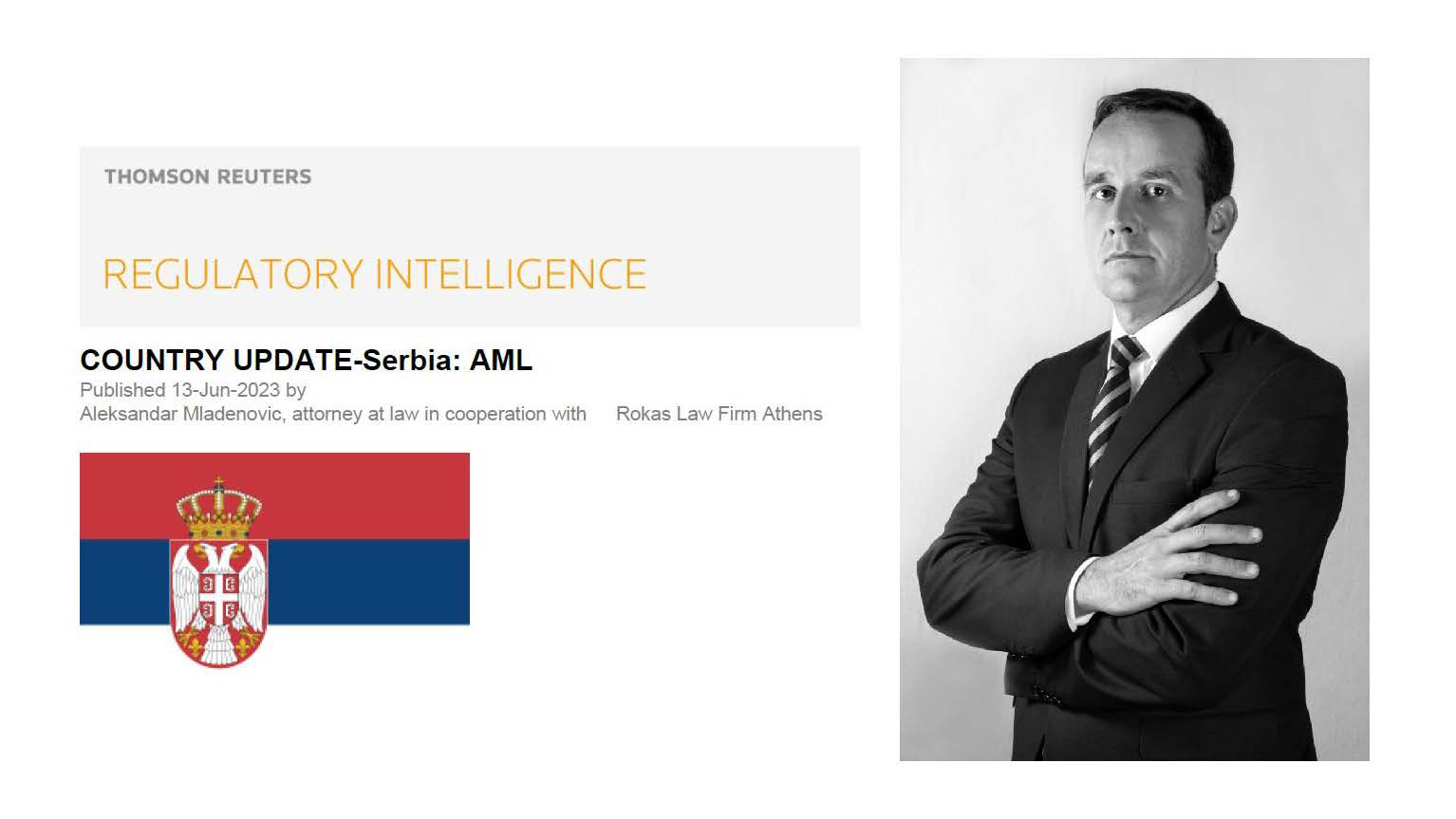The legislative framework in this area is set under the Law for the Prevention of Money Laundering and Terrorism Financing (Official Gazette of RS, no. 113/2017, 91/2019 and 153/2020) (hereinafter “AML/CFT Law” or “Law”) In addition to the above the legislative framework of combating money laundering and financing of terrorism in the Republic of Serbia consists of other laws and by-laws pertaining to other fields and encompassing issues on money laundering and financing of terrorism.
The said laws and regulations refer to definitions of anti-money laundering and terrorism financing; designate reporting entities (the obligors) and explain their obligations; adopt risk based approach requirements for the obligors; describe the procedures and the measures that obligors need to take for customer due diligence (CDD); set out limitations for carrying on business with a customer; describes the conditions under which a reporting agency can conduct simplified or enhanced CDD which are now tailored to a specific situation; define the politically exposed persons and the CDD measures that need to be conducted for these persons; and describe the obligor’s obligation to have in place internal controls of the implementation of obligations and report suspicious transactions and to keep data. Further the money laundering is defined so as to refer to activities such as conversion or transfer of property acquired through the commission of a criminal offense, concealing or misrepresenting the true nature, origin, location, disposition, ownership or right in connection with property acquired through the commission of a criminal offense, acquisition, possession or use of property acquired through the commission of a criminal offense, which may be carried out in the Republic of Serbia and outside its territory.

